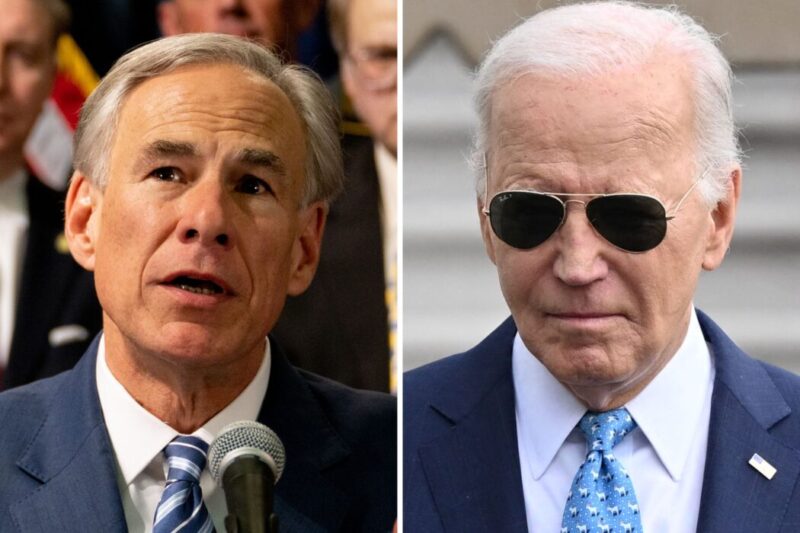Governors Respond To Biden Proposal On National Guard
There has been a brewing controversy over a recent power grab by the Biden Administration, as the Defense Department has asked Congress to override an existing law that requires governors to approve changes to National Guard units. The proposal, known as Legislative Proposal 480, would allow the Defense Department to have unilateral power to transfer units to the Space Force, a move that has been met with strong opposition from governors across the country.
One of the most vocal opponents of this proposal has been Texas Governor Greg Abbott, a Republican who has been a thorn in the side of the Biden Administration on the issue of illegal immigration. In a letter addressed to the White House, Gov. Abbott pointed out that the proposal would shatter a long-standing precedent and give the federal government too much power over the National Guard.
“Although the Texas Air National Guard does not have these types of missions, I strongly oppose any attempt to sideline governors when it comes to their respective National Guards,” Gov. Abbott wrote in his letter, dated May 3. “Congress has long required the consent of a governor before units can be transferred out of the National Guard he commands.”
President Biden and his Admin. are making a power grab for the National Guard.
They want to give the Secretaries unilateral authority to dismantle National Guard units on a whim.
Governors must not be sidelined as commander-in-chief of our National Guards.
Read my letter ⬇️ pic.twitter.com/encZzJ3MnW
— Greg Abbott (@GregAbbott_TX) May 6, 2024
In his letter, Gov. Abbott argued that the proposal would set a dangerous precedent and was nothing more than a “power grab” by the Biden Administration. He also expressed concern about the impact it could have on the readiness of National Guard units to respond to natural disasters, civil disturbances, and other threats to the state.
Gov. Abbott’s sentiments were echoed by a majority of the nation’s governors of states, territories, and commonwealths, who signed a joint letter to Secretary of Defense Lloyd Austin on April 29. In the letter, they expressed their “strong opposition” to the proposal, stating that it “undermines over 100 years of precedent as well as national security and military readiness.” Notably absent from the letter were the signatures of Gov. Abbott and Florida Governor Ron DeSantis, two prominent Republican governors who have been critical of the Biden Administration’s handling of the border crisis.
Many have speculated as to why the Biden Administration would try to reclassify National Guard units to the Space Force, but some have pointed to the fact that more than a dozen Republican governors have sent state National Guard soldiers to help cope with the disastrous Biden border since 2021. This move could potentially prevent these troops from being able to assist at the border, thus avoiding further embarrassment for the administration.
The proposal to move National Guard units to the space force without consultation or approval from governors is totally unacceptable. I appreciate that 52 of my fellow governors from both parties joined me in this letter opposing the move. https://t.co/prV6n7OEm4
— Utah Gov. Spencer J. Cox (@GovCox) April 29, 2024
While the media and progressive voices continue to paint former President Trump as the next Hitler, many are raising concerns about the overreach of the current administration, which has weaponized the Justice Department, defied the Supreme Court, and made heavy-handed moves like this one that appears to be giving the federal government more power at the expense of the states and their citizens.
Governors from both sides of the political aisle have come together in opposition to this proposal, highlighting the importance of the National Guard and the need for governor consent in any changes made to these units. It remains to be seen how the Biden Administration will respond to these concerns, but the response from state leaders makes it clear that Legislative Proposal 480 is a contentious issue that could have far-reaching consequences for state-federal relations.

